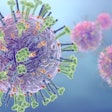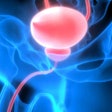
Roche Diagnostics on Tuesday announced the launch of the Digital LightCycler System, a polymerase chain reaction (PCR) system, to enable researchers to accurately detect ultra-rare mutations in DNA or RNA samples that may suggest the development of a disease or condition later in life.
Roche said that the new system will be especially beneficial to researchers working in oncology and infectious disease, who rely on early diagnosis to establish treatment plans and therapies.
"Understanding the hidden characteristics of serious diseases is fundamental for ensuring that the most effective treatment is selected for each patient," Thomas Schinecker, CEO of Roche Diagnostics, said in a statement.
Traditional PCR methods work by copying a small sample of DNA multitudes of times to create a large enough sample for scientists to study. The Digital LightCycler System functions similarly and is able to divide DNA and RNA into as many as 100,000 microscopic reactions.
According to Roche's website, the system consists of three solid state partition plates, six optical channel analyzers for multiplexing, and the ability to hold up to 96 samples per run. Each analysis has a run time of two to four hours.
The Digital LightCycler System will be available in 2022 in 15 countries, with more countries to follow. It will be CE-marked and has an FDA 510(k) exempt status.



















